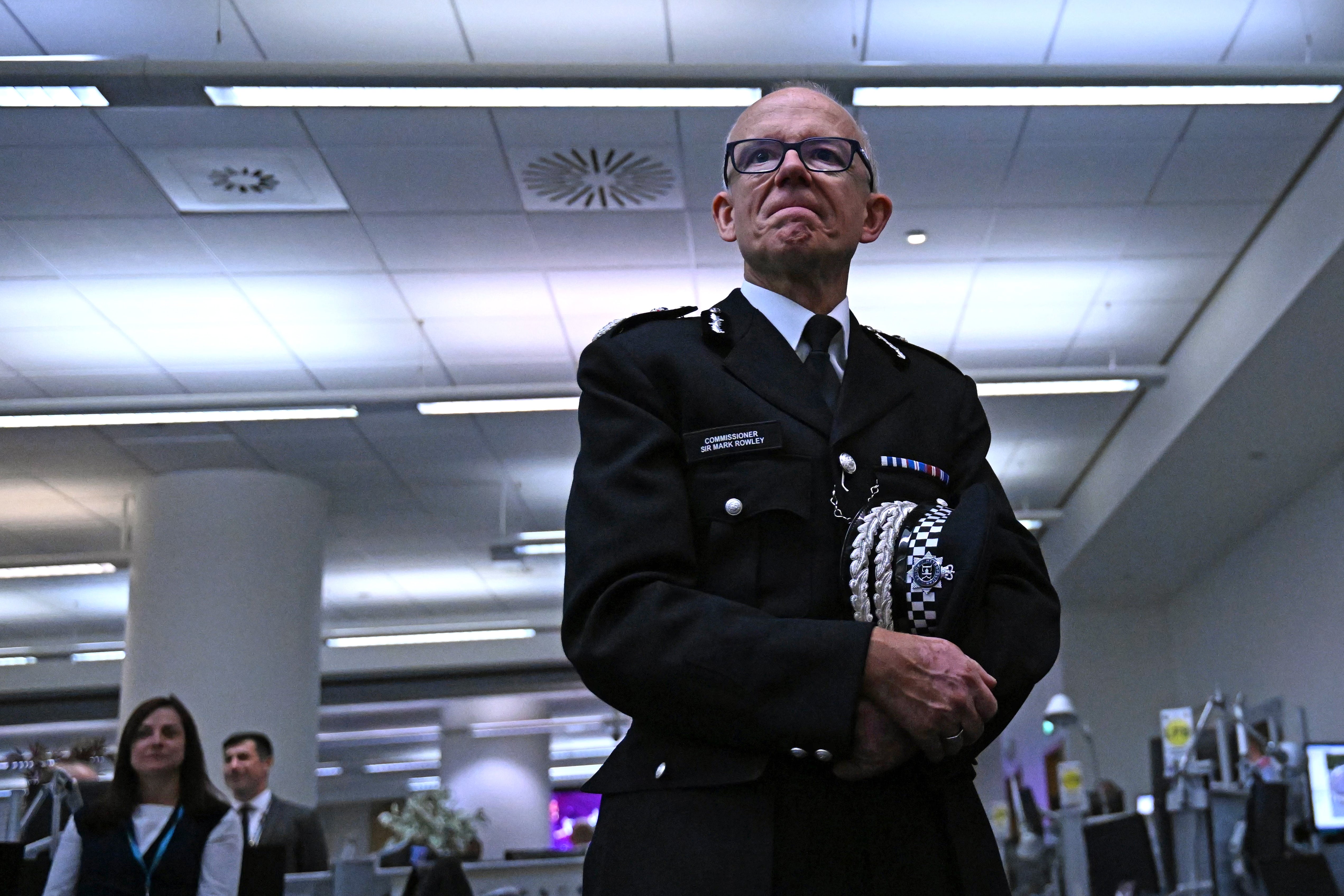New Met Police commissioner vows to be ‘ruthless’ in rooting out racist and misogynistic officers
Britain’s most senior police officer admits force has been ‘too weak’ tackling systemic issues

The new Metropolitan Police commissioner has vowed to be “ruthless” in rooting out racists and misogynists from the force’s ranks.
Sir Mark Rowley refused to say whether he thought Britain’s largest force was institutionally racist, but admitted it has a “real problem with race”.
Speaking to journalists at New Scotland Yard on Tuesday, he said he was “not interested in using labels that have been kicked around by different people to mean different things”.
“Racism is a systemic issue that we have been too weak in tackling, it’s got too much of a hold in corners of the organisation,” Sir Mark added.
“I’m going to be ruthless about rooting out racism and the other bad behaviours, I’m going to confront the systemic issues that have allowed it to prosper in a way it shouldn’t have done.”
He was speaking days after meeting the family of an unarmed Black man, Chris Kaba, who was shot dead by a Metropolitan Police officer following a car chase earlier this month.
The force previously committed to rooting out racism following the 2020 Black Lives Matter protests, but they were followed by a series of scandals revealing racist WhatsApp messages between officers.
Police currently only have the power to seize personal mobile phones and search private communications in criminal investigations, rather than those into misconduct breaches.
Sir Mark said there was “an argument to say policing should be able to reach further” but that changes to disciplinary processes to ensure police are not “forced to retain” unsuitable officers were more important.
He acknowledged that “ghastly incidents” such as the murder of Sarah Everard and cases involving misogynistic officers have dented public trust.
“We’ve let the public of London and the good majority of the workforce down,” he said.
“These cases that have been oozing out over recent years are really toxic and damaging and awful.
“We need to have a deep, hard look at ourselves and say ‘are these just inevitable? Every big organisation has a few problems that emerge,’ or is it worse than that? In my view it is much worse than that.”
Public trust was one of the factors that saw the Metropolitan Police put in special measures by HM Inspectorate of Constabulary in June.
But a damning report published last week showed it was also missing targets for answering 999 and 101 calls and needed to improve the way it investigates crime, protects vulnerable people and supports victims.
The watchdog reveals that almost 14,000 people wanted by the Metropolitan Police for crimes including violence and sex attacks were on the loose, many for significant periods of time.
Asked what had caused the decline in performance and standards, Sir Mark said: “I’m not interested in trying to unpick previous decisions or events, I wasn’t here for the last four years and I don’t want to comment on the calls that people made or how that went.”
He was a Metropolitan Police assistant commissioner and the head of UK counter-terrorism policing, serving under Dame Cressida Dick as commissioner before retiring from policing in 2018.
Sir Mark said that one of the key missions in his first 100 days in his new post would be a blitz on wanted offenders.
“We will be bearing down on that and bringing down the number of people who are wanted for serious offences,” Sir Mark said.
“We think we can get that number down by well into three figures, it’s about moving the balance point so we’ve got more people prosecuted and less people on the run.”
Commander Alexis Boon told the press conference that the Met had contacted courts in London to warn of an “oncoming surge” in prosecutions.
He said there would be an “intensification of our activity” targeting prolific offenders, fraud and suspects at large.
“We are focusing particularly on offenders who commit violence against women and girls – those who are wanted for rape, for breaching orders, for stalking, sex offenders,” the senior officer added.
“We are going to go after burglars, robbers, people with weapons – you will see hundreds of arrests over this hundred days of wanted subjects, people we’re going to bring to justice.”
Other key priorities laid out by the new commissioner included bolstering community policing and “getting the basics right” on responding to crime, including fulfilling a pre-existing policy of making officers attend every domestic burglary.
Sir Mark said he also wanted to support “disillusioned” officers on the frontlines, after figures showed Scotland Yard was struggling fulfilling its targets for a national recruitment drive.
The commissioner said the amount of time spent on non-policing calls were a “massive challenge”, adding: “Other services are struggling to cope and we are dealing with too much of it. At any one time we’ve got so many officers waiting with people in hospital for mental health assessments.
“We are not social workers, yet we are filling that void sometimes in mental health and other areas.”






Join our commenting forum
Join thought-provoking conversations, follow other Independent readers and see their replies
0Comments